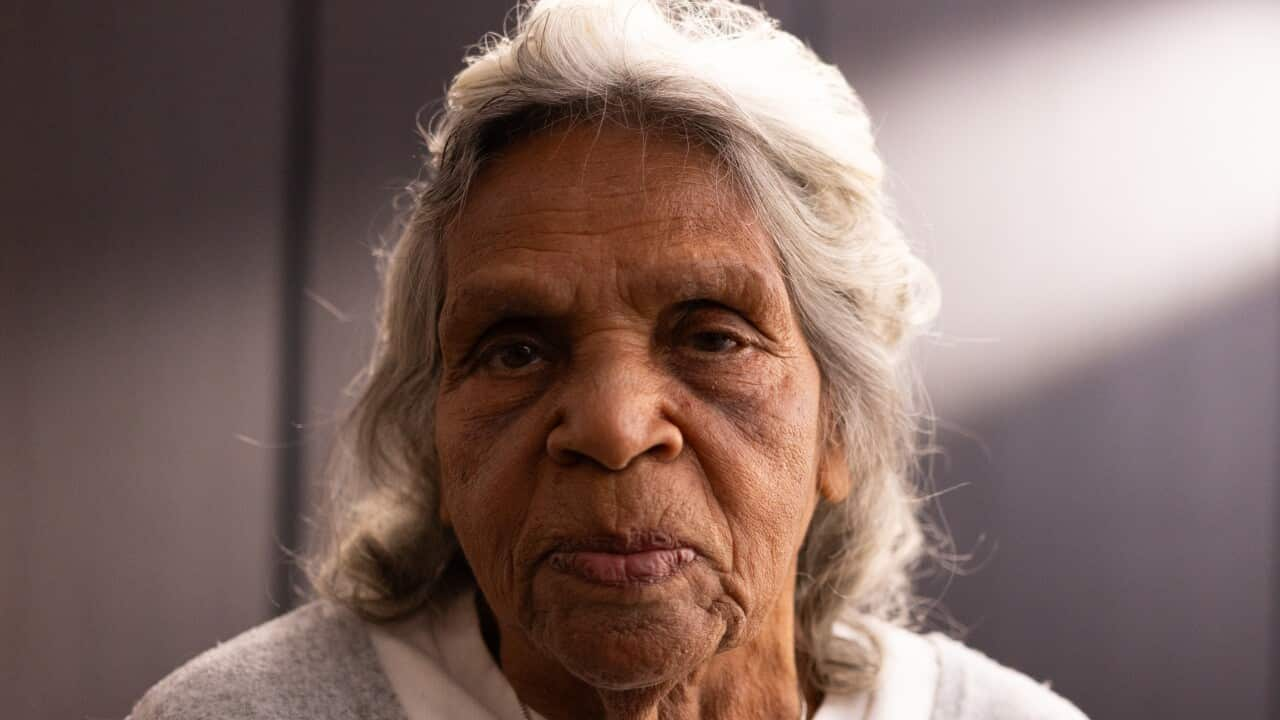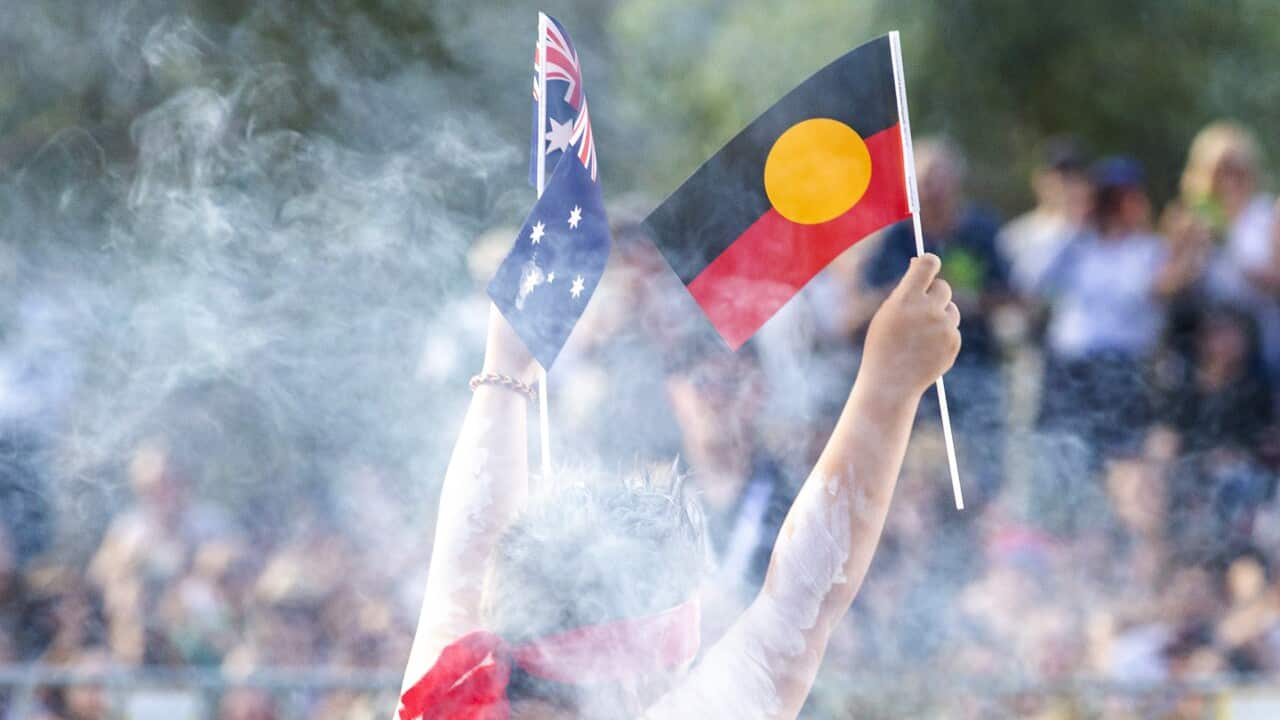As another January 26 rolls around, communities across the continent are preparing for a day of action.
Every year since 1938, Aboriginal and Torres Strait Islander peoples have taken to the streets on that date demanding action on the issues of Indigenous justice and sovereignty.
Those demands will take centre stage again in 2024, but this year will also see gestures of solidarity: organisers in several capital cities are planning to highlight the ongoing devastation in the Palestinian territories, as the Israeli bombardment of Gaza enters its fourth month.
The war between Israel and Hamas, the Palestinian political and military group which has governed the Gaza Strip since the most recent elections in 2006,
Hamas’ stated aim is to establish a Palestinian state and stop the Israeli occupation of Gaza and the West Bank, illegal under international law.
Support between the Aboriginal and Palestinian communities is not new, but with the conflict making international headlines, this year it has added weight.
Palawa man and activist Michael Mansell described the planned demonstrations of solidarity as "natural".
"The whole sense of relevance [between] what's happening in Gaza to the Aboriginal struggle here in Australia is that Indigenous people whose lands have been taken over around the world seek solidarity in the common cause," he told NITV.
"It would be stupid for us to say, 'Oh well, what's happening to the American Indians in North America has got nothing to do with us, or what's happening with the behaviour of Israel toward the Palestinians has nothing to do with us.'
"And so it's only natural that people who are suffering genocide in the same way as we've suffered genocide, are going to get our sympathy and support."
The claims of an Israeli genocide towards the Palestinians are currently being argued before the International Court of Justice in the Hague. The charge has been vehemently denied.
Speakers plan to draw parallels between Israel and Australia
Precipitated by the October 7 massacre of more than 1000 Israeli citizens by the militant group Hamas, subsequent reprisals by Israel have seen more than 25,000 Palestinians killed, most of them women and children, and Gaza's infrastructure decimated.
The conflict, however, sits in the wider context of the tensions which have existed since Israel was formed in May 1948, when a decree by the League of Nations saw more than 50 per cent of what was then Palestine assigned for the creation of the new, Jewish state.
Attempts have been made over the decades to broker peace between Israelies and Palestinians, however no such deal has been successfully maintained between the two entities.
Since the six-day war of 1967, Israel has occupied the Palestinian territories, and today maintains a blockade over the Gaza strip.
Mansell says the history of the Palestinian conflict finds natural sympathy amongst First Nations people here.
"The struggle of Aboriginal people for control of our lives in our country, is the same struggle of the Palestinians, for control of their lives on their lands.
"And so it's pretty pretty obvious that there is a parallel."

Palawa man Michael Mansell says it is incumbent upon January 26 rallies to acknowledge the situation of the Palestinians in Gaza. Source: AAP
He agrees with Mansell's comparison of the situation for Palestinians and Indigenous people here, something he intends to highlight as a speaker at one of lutruwita Tasmania's January 26 rallies.
"What we plan to do is show the parallels between the colonisation of Australia and the colonisation of Palestine," he told NITV.
"As an academic, I'd like to show the statistics of incarceration, murder rate, dispossession of land, home demolitions, how the community is being maligned, mistreated and dehumanised by the coloniser.”
Yousif says the contemporary parallels are mirrored by more historical examples as well: the notorious Aboriginal protection boards here in Australia dictated to First Nations people their freedom of movement, all governed by permit.
"What the Israelis do is exactly the same," said Yousif of the current day Palestinian territories.
"So they have a permit system and you need a permit for everything: to visit a holy place [or] to move between one [place] to another.”
Some fear alienating Jewish allies
The plans for a show of solidarity with Palestinians has not been without controversy.
Some have criticised the decision to associate the January 26 rallies with calls for change in Palestinian territories, or the assertion that Aboriginal people sense a common cause with its people.
Former Labor senator and Olympian Nova Peris agrees, saying she was not in favour of the planned actions.
"I have serious concerns about attempts to link the challenges faced by our people, with the issues being dealt with by the Palestinian community," she told NITV.
"It is historically and morally inappropriate to raise the Palestinian cause in conjunction with 26 January. It demonises and endangers Jewish Australians who have strongly supported Indigenous causes for decades."
Ms Peris strongly rejects any similarities drawn between Israel's occupation of the Palestinian territories and Australia's colonial history.
"The whole narrative being used by the pro-Palestine lobby in Australia - that Jews in Israel are 'settler colonialists' who have illegally occupied the land of the Palestinians - is completely false.
"It is the history of the Jews in Israel/Palestine which has the more accurate parallels with the history of my Aboriginal people in Australia.
"The Jews are the Indigenous inhabitants of the land of Israel/Palestine."
While Jewish presence in the area dates back thousands of years, the modern-day occupation and settlement of the Palestinian territories by Israel is considered illegal by the United Nations.
Ms Peris also pointed to modern examples of Jewish-Aboriginal solidarity, such as the Executive Council of Australian Jewry's support for the Voice, and lawyer Ron Castan's pursuit of the Mabo case in the High Court.
'International solidarity is very important'

Independent senator Lidia Thorpe speaking at a Free Palestine event in November last year. Source: AAP / JOEL CARRETT/AAPIMAGE
"The right wing of Australia ... is very active in trying to portray any condemnation of the Israeli behaviour, as antisemitic," said Mansell.
"And they're completely separate. The Jewish people will always have the sympathy of Aboriginal people."
Independent senator Lidia Thorpe, who attended a 'Free Palestine' rally in November last year, agreed, pointing to historical examples of Aboriginal solidarity.
"The relationship that Jewish people had, particularly with William Cooper and the support that we showed back in 1938, shows that international solidarity is very, very important," the DjabWurrung Gunnai Gunditjmara woman told NITV.
That year, Yorta Yorta man William Cooper protested the plight of Jewish Europeans at the hands of the Nazis, marching to the German consulate in Melbourne and presenting a petition against the injustices.
"There's a lot of Israeli people that continue to support Aboriginal people in this country, and also support Palestinian people, and the call for an immediate ceasefire."
For most rallies, the central focus of the day will remain on calls for the government to change the date of the Australia Day ceremonies.
The Blak Caucus, organisers of Sydney's march, say they plan to promote 'healing' after the referendum, protesting child removals and demanding action on deaths in custody, amongst other causes.
Palestinian solidarity will be among them, as it will in other cities.
"We could hardly put our head in the sand, and say, 'The importance of changing the date takes precedence over the loss of 20,000 Palestinians at the hands of the … Israelis,” said Mansell.







